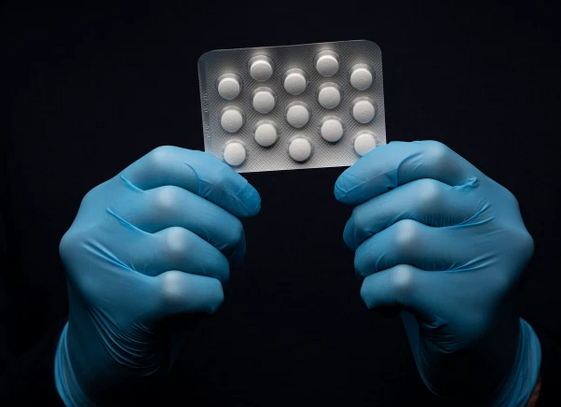
The antimalarial drug hydroxychloroquine has shown promise in treating the coronavirus – helping to speed up the recovery of a small number of patients suffering a mild form of the illness, according to a report.
In a study published online this week, Chinese researchers found that patients who were administered the drug saw their cough, fever and pneumonia go away faster than in a group that did not receive it, according to the New York Times.
The illness also appeared less likely to become severe among those who were treated with hydroxychloroquine, according to the small study posted on the preprint server medRxiv before undergoing peer review.
However, the study did not include data on severely ill patients.
The authors said the findings were promising, but that more research was needed on how hydroxychloroquine might work in treating COVID-19 and how to best use it.

“It’s going to send a ripple of excitement out through the treating community,” Dr. William Schaffner, an infectious disease expert at Vanderbilt University, told the Times.
But the findings offer strong support for prior studies suggesting a role for the medication, Schaffner added.
“I think it will reinforce the inclination of many people across the country who are not in a position to enter their patients into clinical trials but have already begun using hydroxychloroquine,” he said.
President Trump has touted hydroxychloroquine as a possible drug to be used to prevent the coronavirus — and also said chloroquine, another antimalarial and autoimmune disease drug, “could be a game changer.”
The latest study — which was conducted at the Renmin Hospital of Wuhan University in the city where the virus originated — included 62 patients with an average age of about 45 and had a control group, according to the newspaper.
The researchers made sure not to include anyone who had medical problems that could be made worse by hydroxychloroquine, like abnormal heart rhythms, some eye diseases, and liver or kidney problems.
Half the patients studied — the control group — received only the usual treatment offered to coronavirus patients, while the rest got hydroxychloroquine plus the usual care, including oxygen, antivirals and antibiotics.
Coughs and fever eased a day or so earlier among those who received the drug — and pneumonia improved in 25 of 31, compared with 17 of 31 in the control group. The disease became severe in four patients in the control group.
Schaffner cautioned that the findings pertained only to people with relatively mild cases.
“If you want to treat people who are already seriously ill, we don’t know how well this will work,” he told the Times.